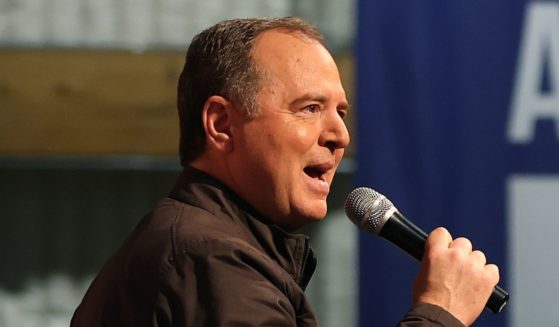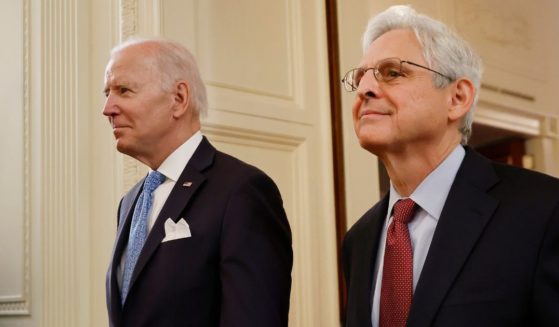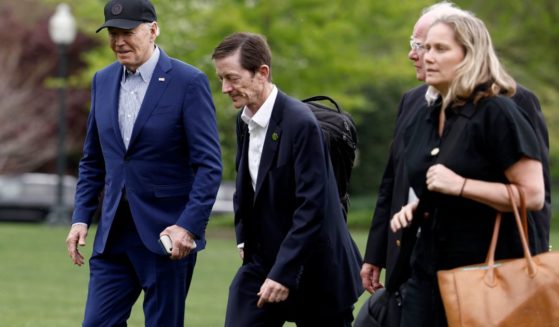NYT Columnist Blasts Other Anti-Trumpers for Outrageous Attacks on Iran Strategy
I was surprised to see the headline for David Brooks’ latest opinion piece at The New York Times, which I agreed with wholeheartedly: “Trump Has Made Us All Stupid.”
Yes, President Donald Trump has made plenty of people stupid — Brooks among them.
Anyone who read his head-slappingly preposterous “Flyover Man vs. Urban Guy” piece — in which an imagined Trump supporter and an imagined liberal, respectively, had a stilted Socratic dialogue about their feelings on the president, a dialogue that was every bit as intellectually impoverished as the title might suggest — would be hard-pressed to disagree.
My favorite Twitter comment on that dumpster conflagration: “[T]he only person more staunch in their refusal to read David Brooks than I am is his editor.”
At least this time, Brooks is candid — if not particularly nuanced — about the shortcomings of the left in the Trump era.
Brooks — a nominal conservative, although that means virtually nothing around The Times’ newsroom — still thinks the president “is impulse-driven, ignorant, narcissistic and intellectually dishonest.”
He just doesn’t think those opposing him are all that much better.
The death of Iranian Gen. Qassem Soleimani and the reaction to Iran’s moves, Brooks wrote in the Thursday article, has “shown that the anti-Trump echo chamber is becoming a mirror image of Trump himself — overwrought, uncalibrated and incapable of having an intelligent conversation about any complex policy problem.
“For example, there’s a complex policy problem at the heart of this week’s Iran episode. Iran is not powerful because it has a strong economy or military. It is powerful because it sponsors militias across the Middle East, destabilizing regimes and spreading genocide and sectarian cleansing. Over the past few years those militias, orchestrated by Qassim Suleimani, have felt free to operate more in the open with greater destructive effect,” Brooks wrote.
“We’re not going to go in and destroy the militias. So how can we keep them in check so they don’t destabilize the region? That’s the hard problem — one that stymied past administrations.”
That’s why Brooks said a strike like the one against Soleimani was part of the balancing act. Brooks called it using “violence as a form of communication” — again, not a paragon of nuance, but roughly what you’d expect from Brooks.
“These sorts of operations have risks and rewards. A risk is that it won’t cease the escalation, just accelerate it. The radicals on the other side will get enraged and take to the streets. Their leaders will have to appease that rage,” Brooks continued.
“A reward is that maybe you do halt the escalation. The other side implicitly says: ‘Message received. We’ll do some face-saving things to appease the streets, but we don’t want this to get out of hand, either.’ Another reward is that you’ve managed to eliminate an effective terrorist like Suleimani. Talent doesn’t grow on trees.”
While Brooks said some people in the public sphere were talking about this balance — he named retired Army Gen. Stanley McChrystal and former National Security Advisor Susan Rice as two people he thought were doing so — members of the “anti-Trump echo chamber” weren’t.
“Led by Bernie Sanders and Elizabeth Warren, they avoided the hard, complex problem of how to set boundaries around militias. Instead, they pontificated on the easy question not actually on the table: Should we have a massive invasion of Iran?” Brooks wrote.
“A great cry went up from the echo chamber. We’re on the brink of war! Trump is leading us to more endless wars in the Middle East! We’re on the precipice of total chaos!” he continued.
“This was not the calibrated language of risk and reward. It was fear-stoking apocalyptic language. By being so overwrought and exaggerated, the echo chamber drowned out any practical conversation about how to stabilize the Middle East so we could have another righteous chorus of ‘Donald Trump is a monster!’”
This is, of course, Trump’s fault — his “ultimate victory,” as Brooks calls it. But whether or not Trump is actually the cause of the derangement syndrome, Brooks did accurately diagnose it.
“Hating Trump together has become the ultimate bonding, attention-grabbing and profit-maximization mechanism for those of us in anti-Trump world. So you get a series of exaggerated fervors — the Mueller report! Impeachment! The Steele dossier! — that lead ultimately nowhere,” he wrote.
“Most of this week’s argument about the Middle East wasn’t really about the Middle East. It was all narcissistically about ourselves! Democrats defend terrorists! Republicans are warmongers! Actual Iranians are just bit players in our imperialistic soap opera, the passive recipients of our greatness or perfidy.”
Trump, he wrote, has actually used the military less than most presidents — and this is a bad thing, Brooks said, because “populist Republicans and Democrats are gravitating toward the same foreign policy” of isolationism.
The rest of the piece is your usual Brooksian miasma of ideas which never quite cohere; he seems to invoke Samuel Huntington by saying both sides think they’re “in the middle of a clash of civilizations” but have come to the very un-Huntingtonian conclusion that isolationism is the answer.
There’s an argument against populism and another attempt to pin all of this reflexive talk about Iran on Trump (“Maybe once the Inflammatory One is finally gone from the scene we can have an intelligent conversation about” isolationism, he concludes), and we’re done with what’s actually one of David Brooks’ more insightful columns.
That’s not saying much, but at least he realized the outrage over the death of Soleimani for what it was — ill-considered bluster that had nothing to do with the man who was killed and everything to do with the man who ordered the strike.
Brooks wasn’t the only one, mind you. Take NeverTrump commentator Tom Nichols, who posted a Twitter thread attacking those who would blame the Trump administration for the (now-confirmed) Iranian shoot-down of a Ukrainian airliner.
One of the following tweets contains profane language that some readers may find offensive. Reader discretion is advised.
I do not yet know how Iran shot down that plane. Occam’s Razor says: Incompetence, failure to spread the word, some dumbass who wasn’t trained enough, poor discipline among air defense guys. It wasn’t a U.S. hit on an airliner. It was a screwup during operations. /2
— Tom Nichols (@RadioFreeTom) January 10, 2020
Eventually someone was going to ace Soleimani. Was Trump right to do it? Me, I wouldn’t trust Trump’s guys to order a Happy Meal and get it right. But worrying Iran is “jumpy” is like worrying if John Gotti was extra-murdery because the FBI wasn’t letting him get enough sleep. /4
— Tom Nichols (@RadioFreeTom) January 10, 2020
If there had been waves of U.S. planes bombing the hell out of Tehran, and some guy misidentified a plane, sure. We’d have some responsibility. But an attack that was theirs to plan, time, and execute means it’s *their* job not to target a plane at their own airport. /6
— Tom Nichols (@RadioFreeTom) January 10, 2020
I want Trump impeached and removed. I want him gone in 2020 if that fails. But “Trump made the Iranians do bad stuff” is juvenile and stupid. That’s not how military operations work, nor how chains of command operate in any country.
Seriously, people, get your shit together. /8x— Tom Nichols (@RadioFreeTom) January 10, 2020
PS: Stop using “the fog of war.” You’re all using it incorrectly. An operation planned at the discretion of the regime, on their own time, with no hostilities underway, is not the “fog of war.” Enough already.
— Tom Nichols (@RadioFreeTom) January 10, 2020
Well, at least it’s only fringe voices saying stuff like that:
Innocent civilians are now dead because they were caught in the middle of an unnecessary and unwanted military tit for tat.
My thoughts are with the families and loved ones of all 176 souls lost aboard this flight. https://t.co/zWaVgWxfdL
— Pete Buttigieg (@PeteButtigieg) January 9, 2020
Brooks and Nichols are right in one crucial area, as much as you might disagree with them in others.
The Democratic line is that Trump is, inflammatory, narcissistic, vulgar, thoughtless and myopic. In opposing him, they’ve chosen to embody every single one of those attributes.
It’s impossible to take the left seriously when it seems as if they see more of a threat from the Oval Office than from Iran’s state-sponsored terrorist apparatus.
When David Brooks is making more sense than presidential candidates, it’s dire times indeed.
Truth and Accuracy
We are committed to truth and accuracy in all of our journalism. Read our editorial standards.












